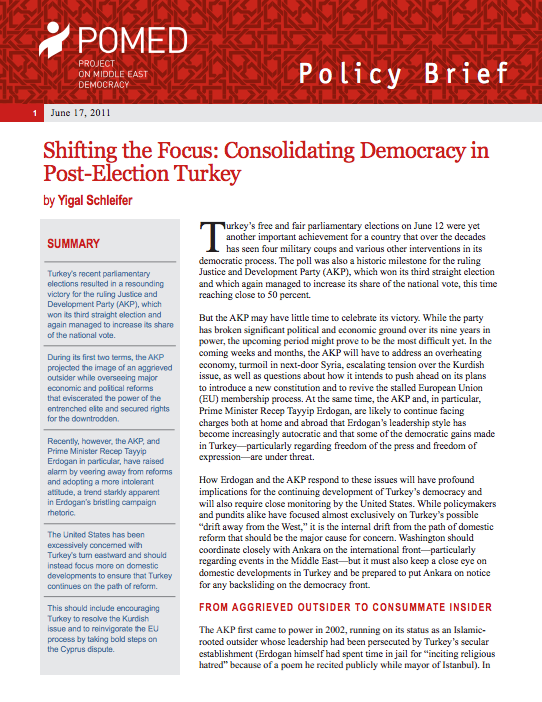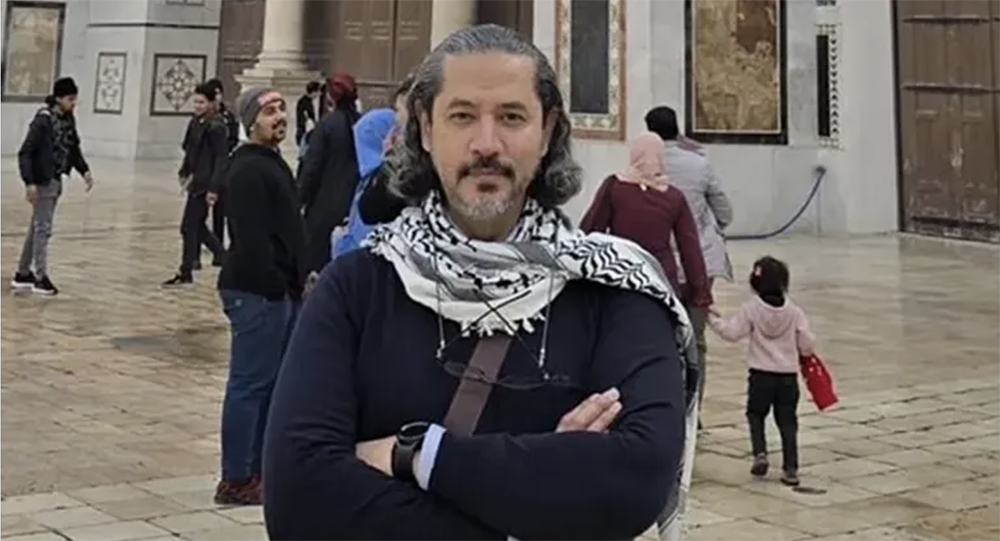For a full text copy of the brief, click here.
Turkey’s free and fair parliamentary elections on June 12 were yet another important achievement for a country that over the decades has seen four military coups and various other interventions in its democratic process.  The poll was also a historic milestone for the ruling Justice and Development Party (AKP), which won its third straight election and which again managed to increase its share of the national vote, this time reaching close to 50 percent.
The poll was also a historic milestone for the ruling Justice and Development Party (AKP), which won its third straight election and which again managed to increase its share of the national vote, this time reaching close to 50 percent.
POLICY RECOMMENDATIONS
- Pay closer attention to Turkey’s domestic scene and be prepared to put Ankara on notice for any democratic backsliding. A closer focus on Turkey’s domestic developments regarding democratization issues and a willingness to confront Ankara about any negative developments on that front will send a strong signal that Turkey’s continuing democratization is a priority for Washington.
- Encourage Ankara to re-start a comprehensive process for resolving the Kurdish issue. In 2009, the AKP took unprecedented steps in pushing for reforms that would have granted the Kurds more political and cultural rights. However, the initiative quickly ground to a halt when Kurdistan Workers’ Party (PKK) militants received a hero’s welcome from local Kurds upon their return to Turkey—outraging the Turkish majority.
- Remind Ankara of the importance of the EU process and engage with Brussels and the Europeans to help get the process moving again. At a time when the U.S. and Europe are coordinating closely to assist the democratic transitions in Egypt and Tunisia, they should also be discussing the future of Turkey. EU negotiations remain critical for Turkey’s continuing democratization and reform process.
- Engage with Turkey’s opposition parties and the country’s civil society groups in order to assist them in developing productive policies and positions. One of the main challenges facing Turkish democracy has been the lack of a serious political opposition.




